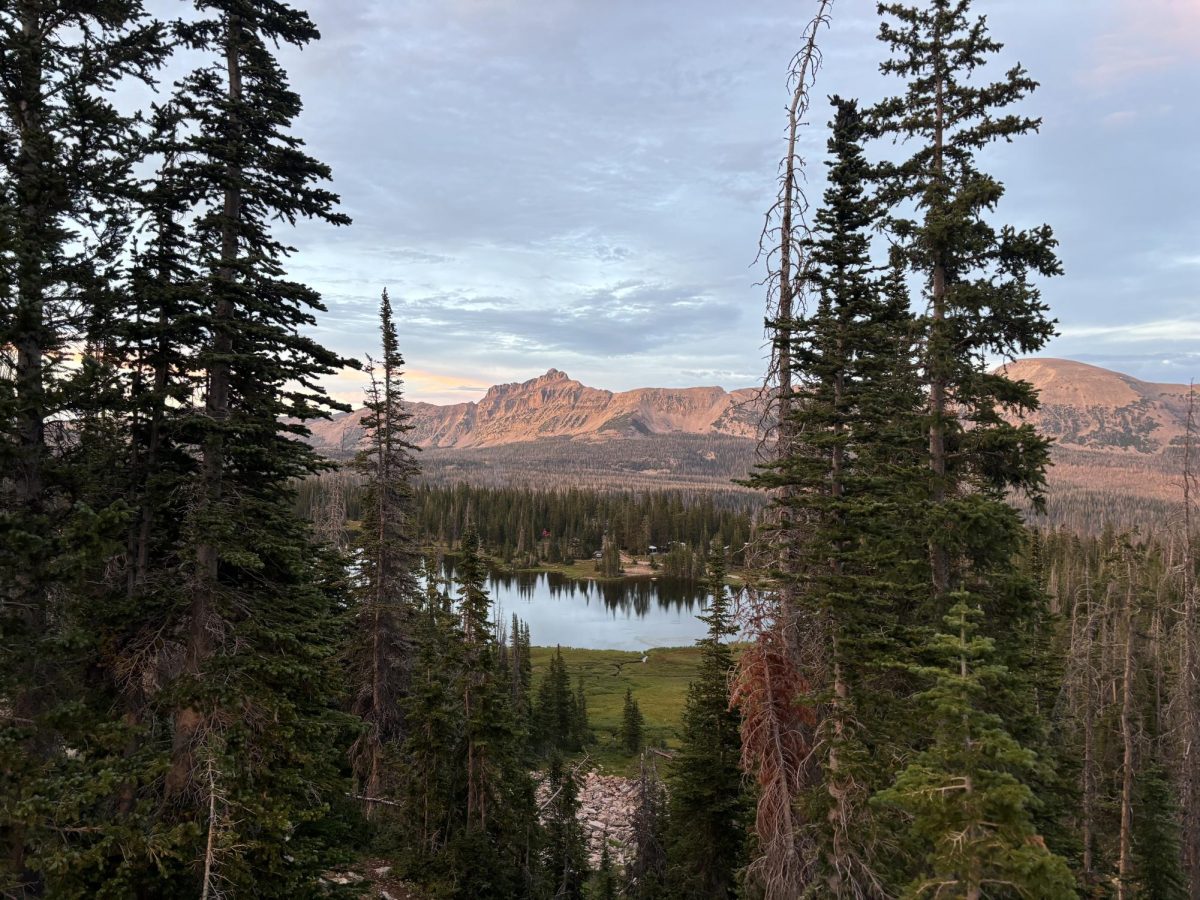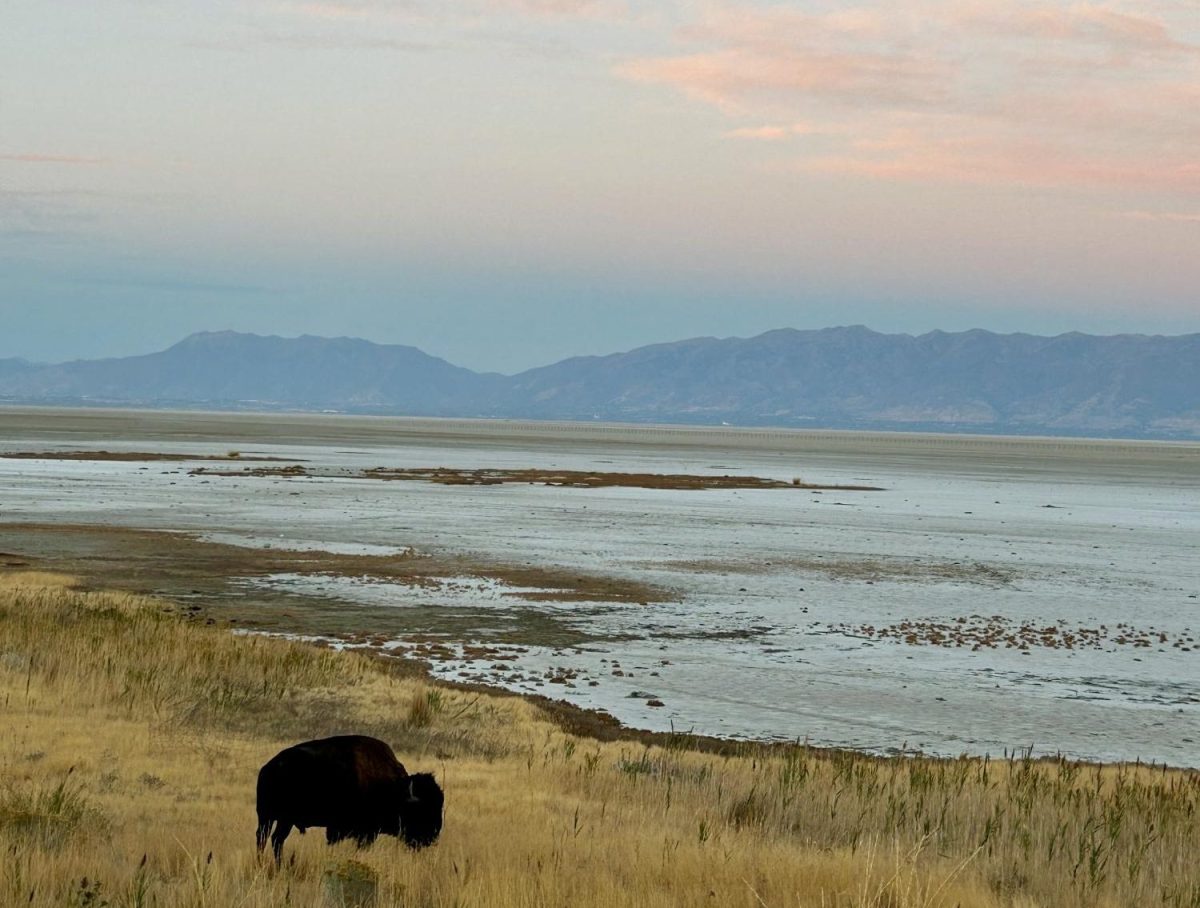For approximately two weeks a year, the Wasatch Mountains catch on fire. The leaves erupt into innumerable shades of red, yellow, and orange. The air cools, and the world is caught in a beautiful limbo between life and decay. This beautiful fall experience usually lasts from the end of September to the middle of October. Due to this special occasion, it seems the opportune time to cover the many benefits of hiking in Nature to the average Highland student.
“And into the forest I go to lose my mind and find my soul,” John Muir
One benefit of hiking is stress management, and stress management is exactly what we need right now. According to the American Institute of Stress, a whopping 32% of teenagers reported extreme stress during the school year. Even worse, 26% of teenagers reported using drugs or alcohol as a coping mechanism for stress. So how does hiking reduce this stress?
Stress can come from procrastination. According to the Attention Restoration Theory (Kaplan & Kaplan 1989), there are two types of attention: direct and indirect. Direct attention is what we use to focus on homework, tests, studying, etc. Indirect attention is when our interest is piqued involuntarily by things we genuinely enjoy and are interested in. This could include sports, hobbies, or electives such as ceramics and orchestra. According to academic theories, this direct attention is finite. When direct attention depletes, it manifests in stress and an inability to focus or manage time. To counter this, the theory is that being in nature provides so much foreign stimuli that our involuntary attention is constantly piqued. This then allows for a “reprieve” of sorts to our cognitive focus.
Hiking is also an amazing opportunity to cross train for high school sports. Its benefits range from increasing endurance to strength training. When lifting weights, you can choose how much and when you lift. You cannot make the same choices in hiking; whether you like it or not, you are going to constantly push your body’s strength and endurance. These benefits are especially prevalent in hikes with large elevation gains and losses. When hiking uphill you constantly and intensely work your glutes, hamstrings, and calves. When hiking downhill, you target your quads and hip/knee flexors. In addition, if you are wearing a heavy backpack, you work your shoulders and back. Hiking provides a full body, balanced workout. Perhaps most importantly, it usually does it without you noticing.
While hiking does not spike your heart rate as quickly as high-intensity cardio such as track or cross country, but its ability to get your heart pumping is not to be underestimated. A simple hike is an amazing way to improve your cardiovascular fitness, especially if the route includes steep elevation gains. These inclines force your heart to work harder. Although, you do not need drastic elevation gains to get benefits. Hiking is a form of aerobic (cardio) exercise that increases your breathing and heart rate. This occurs due to the body’s increased demand for oxygen. The specific benefit your heart gets from hiking is the increased blood flow to the small vessels around your heart that supply it. These vessels are some of the most common locations to get blockages that could cause cardiac arrest or heart disease. The increase in blood flow allows the vessels to be “cleaned.”
“Hiking and happiness go hand in hand or foot in boot.” –Dianne Spicer.
Happiness, whether subjective or just general well-being, is positively affected by Nature. For example, vitality (that general good feeling) appears to be enhanced by connecting with nature (Ryan & Fredrick, 1997). In addition, individuals lacking self-esteem -such a major problem for teenagers worldwide- experienced significant improvement when in nature (Mayer et al., 2009). The elevating feelings of a connection to a greater whole are also a hallmark of being in the wilderness. Connection Even if the contact with nature is brief, such as a short walk in the park, this can lead to significant boost in mood (Nisbet & Zelenski, 2011).
“The goal of life is to make your heartbeat match the beat of the universe, to match your nature with Nature” –Joseph Campbell
The hiking season may be coming to a close but there are still many opportunities to get started. Grab some buddies and head out any time you have an open afternoon or morning. If no one will go with you or transportation is an issue, the Highland Alpine club is a great way to meet new nature appreciators to hike with.
Nature provides you with rich and foreign stimuli, allowing you to recuperate your capacity to be attentive. Hiking is a well-rounded exercise that works everything from our quadriceps and calves to our hearts. Finally, the wilderness gives you a sense of wellbeing that few other things can. With so many benefits, it is imperative that more teenagers make use of hiking outdoors.
Wondering what your path is in the world? Perhaps it’s time to step into a new one—the great outdoors.



































